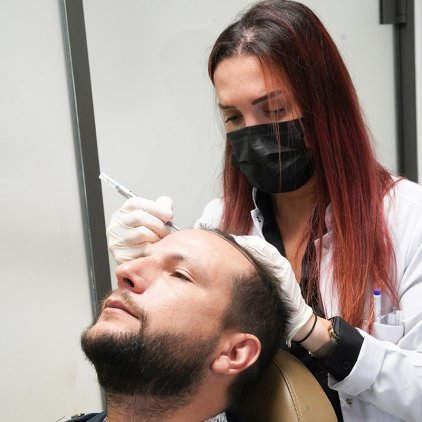

Hair transplants have become one of the most sought-after cosmetic procedures for men and women experiencing hair loss. In 2025, the United Kingdom and Turkey remain two of the most popular destinations for treatment, but their pricing, care models, and patient experiences differ significantly. This article compares both markets to help patients understand where the best value lies.
Hair transplants have become one of the most sought-after cosmetic procedures for men and women experiencing hair loss. In 2025, the United Kingdom and Turkey remain two of the most popular destinations for treatment, but their pricing, care models, and patient experiences differ significantly. This article compares both markets to help patients understand where the best value lies.

Hair transplant surgery in the UK is well-regulated and typically delivered by highly qualified specialists. However, these benefits are reflected in the price.
Key cost drivers in the UK include:
Surgical method – Follicular Unit Extraction (FUE) remains common, but newer options like Direct Hair Implantation (DHI) or robotic-assisted transplants often command higher fees.
Number of grafts required – More extensive procedures can quickly escalate in price as operating time and resources increase.
Clinic prestige – Leading clinics in London, Manchester, or Birmingham often charge premium rates, especially when associated with well-known surgeons.
Follow-up services – UK packages often include detailed aftercare plans, prescription medication, and multiple in-person reviews, which add to the final bill.
On average, UK patients in 2025 can expect to pay anywhere from £4,000 to over £15,000, depending on the scale and complexity of the procedure. The higher costs reflect strict healthcare standards and personalized post-treatment support.
Turkey has solidified its reputation as the world’s leading hub for hair transplants, attracting patients from across Europe, the Middle East, and North America.
Why Turkey remains cost-effective in 2025:
Lower baseline costs – Reduced operational expenses and favorable currency exchange rates allow clinics to offer highly competitive prices.
All-inclusive packages – Most clinics advertise fixed-price bundles covering surgery, accommodation, airport transfers, and aftercare essentials.
High-volume expertise – Turkish surgeons often perform thousands of procedures annually, giving them unmatched hands-on experience.
Global standards – Advanced methods such as sapphire FUE, DHI, and robotic systems are widely available, often at a fraction of UK costs.
In 2025, typical fees range from £1,500 to £4,500, making Turkey between 50% and 75% cheaper than comparable procedures in Britain—even when factoring in flights and hotel stays.
Cost gap: Turkey offers significantly lower pricing, with savings often exceeding 60%.
Per graft rate: UK charges average several pounds per graft, while Turkey typically ranges from £0.60–£1.20 per graft.
Aftercare: UK patients enjoy long-term local follow-up. Turkish clinics provide short-term recovery support, but extended care may require remote communication or repeat visits.
Regulation: UK clinics operate under strict Care Quality Commission (CQC) oversight. In Turkey, quality varies, so selecting accredited clinics (ISO, JCI) is essential.
Convenience: Staying in the UK eliminates travel but is more expensive. Turkey requires travel planning yet delivers substantial savings.
Language and support: Turkish clinics commonly employ multilingual staff to accommodate international patients.
Choosing between the UK and Turkey depends on personal priorities:
UK advantages: Convenience, strict regulation, local aftercare, and close patient oversight.
Turkey advantages: Affordability, comprehensive treatment packages, and surgeons with extensive case experience.
Patients should weigh cost savings against travel requirements, evaluate surgeon credentials, and review clinic reputations carefully before committing.
By 2025, hair transplant costs in the UK remain significantly higher than in Turkey—often two to three times the price for similar procedures. Both regions offer skilled surgeons and modern techniques, but the final decision should balance budget, safety, aftercare, and convenience. For patients prioritizing affordability, Turkey remains a global leader, while those seeking local care and close regulation may find the UK worth the additional expense.